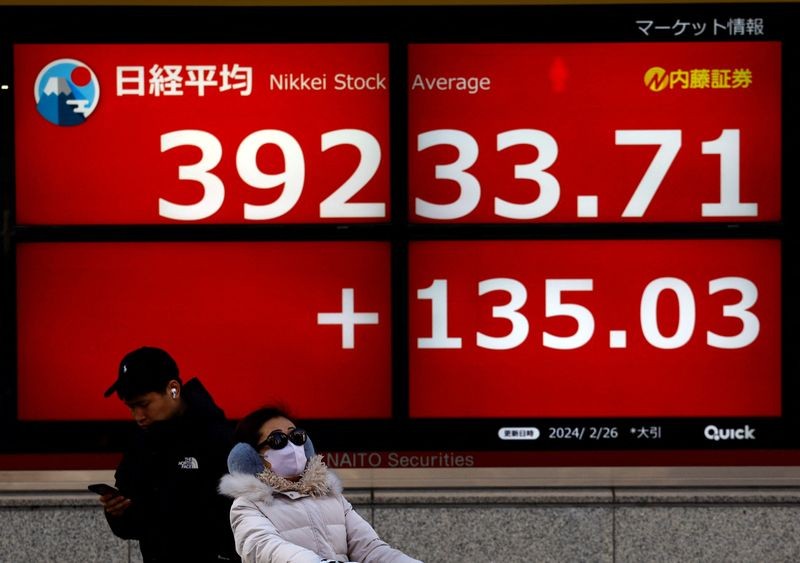Most Asian stocks fell on Monday amid uncertainty over what a potential change in US leadership would mean for the region, and a surprise interest rate cut in China aimed at reviving a weak economy.
Regional markets in Asia were digesting a surprise decision by US President Joe Biden to drop out of the presidential race and endorse Vice President Kamala Harris to run for the Democratic nomination instead.
Harris is now likely to compete against Republican nominee Donald Trump.
The extended decline in technology stocks also pressured Asian markets, as profit-taking and a shift to more economically sensitive sectors led to heavy losses in the technology sector, according to Reuters.
In China, the Shanghai Shenzhen 300 and Shanghai Composite fell 0.7% each on Monday, with losses capped by an unexpected cut in benchmark borrowing costs from the People's Bank of China.
But the move did little to improve sentiment toward Chinese markets, which have suffered sharp losses in recent weeks amid growing expectations that Trump will win a second presidential term.
A second Trump term could involve strained trade relations with China and tariff increases on Chinese imports, which is not optimistic for the world's second-largest economy.
Concerns about China affected other regional markets, with the Australian index falling 0.8%, due to its strong relationship with China.
Japan's Nikkei closed at a three-week low on Monday, extending its decline into a fourth session as chip-related stocks retreated.
The Nikkei fell 1.16% to 39,599 points, its lowest closing level since June 28 in its longest losing streak since October last year.
The broader Topix index also lost 1.16% to 2,827.53 points.
South Korea's Kospi fell 1.2% due to sharp losses in major chipmakers.
Taiwan’s weighted index fell 3%, extending recent losses amid uncertainty over how the new U.S. administration will handle the island and its relationship with China. Chipmaker TSMC fell 3%, extending losses despite strong second-quarter earnings.







































